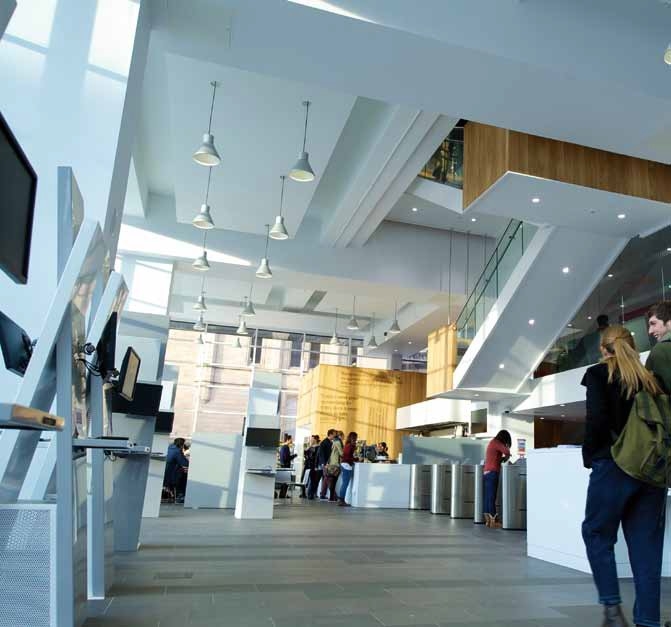- The sector is finding alternative ways to secure a sustainable future in competitive and uncertain times
- UK universities are engaging with local communities more than ever to increase income from non-traditional sources
New research released today (8 September 2017) by the Association of University Directors of Estates (AUDE) reveals, UK universities continue to tackle sector funding challenges with innovative new routes, such as commercial deals, strengthening their position as hubs of local communities.
In 2016, capital expenditure reached a record high of £2.75bn per annum, as the sector continues to improve its estate and facilities in the knowledge that students and staff expect high quality and attractive facilities. To address this, the higher education sector has created additional income of £4.4 billion[ii] through non-traditional income sources, including a growing amount of commercial deals, over the past year to support these activities.
The research also celebrates the excellent work undertaken by university estate teams in providing world class learning spaces, despite many challenges. The figures show universities gained an increasing percentage of their revenue through ‘other’ income, with one of the main sources of this being property deals and intellectual property rights.[iii] Within the context of major changes in funding of the sector, it has been seeking alternative sources of revenue and in the last decade, commercial partnership deals with businesses such as Ocado, Regus and Santander have been completed.
The Teaching Excellence Framework, which recently introduced a scoring model with the potential to affect government investment (dependant on the university’s teaching performance), has increased this pressure, creating a more competitive market. Universities face a challenge of securing such income in order to create and sustain high quality facilities and world class institutions to attract staff and students alike from both the domestic and international markets.
Mike Clark, AUDE chair, said: “Despite a period of policy upheaval, UK universities are continuing to deliver world-class facilities and engage with communities through innovative routes. Our mandate, to attract and retain the finest students and staff from across the UK and internationally, is more important than ever in increasingly changeable political times. Making sure we have the funds to provide these facilities is of paramount importance to the sector.”
In response to the challenge to secure a sustainable future for students, the data, gleaned from (the annual Estate Management Report), found that commercial deals, property shares, rental space and business investments are on the rise.
Estate management is continuing to add value through the different efficiencies among higher education institutions. Across the sector, the report documents examples of universities utilising its estate in order to secure alternative funding streams outside of traditional routes. The University of Hertfordshire embarked on a strategy to boost income by securing commercial deals with businesses such as Ocado and Regus for office space, as well as commercial leases with bank Santander and the NHS which runs a GP clinic on campus. The university’s income rose to £1,477 per square metre in 2014/15, an increase of 6% from 2012/13.
Ian Grimes, Director of Estates from the University of Hertfordshire said; “Providing the best possible student experience is crucial to attracting staff and students both from the UK and internationally, and in order to do this we are investing across a number of areas to give our students the industry-standard environment and facilities they need. Creating a university which is integral part of the local community is key to this, which is why we’re pleased to be exploring different commercial deals with local businesses.”
The sector continues to work more closely with business and communities to drive local and regional economic growth. The University of Sheffield built workshops, laboratories and office space in Catcliffe near the M1 in a business park. The capital expenditure in Sheffield Business Park will deliver 4,000 jobs and generate over £210m per annum to the regional economy when fully developed.
Mike Clark, AUDE chair, continues: “A real feature of the evolution of the higher education estate in recent years has been how the local community is able to use the estate, or in which developments are a part of the community. Imaginatively developed facilities can support and enhance higher education’s contribution to the economy and to society. But in this landscape, there is no room for complacency and it is exciting to see higher education institutions engage with communities in a multitude of exciting ways.”
For more information please visit www.AUDE.ac.uk.


